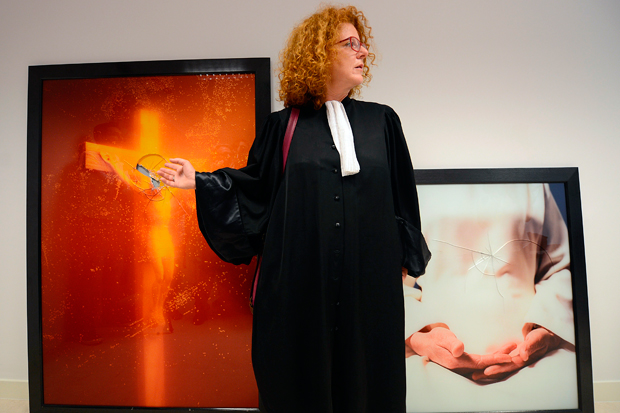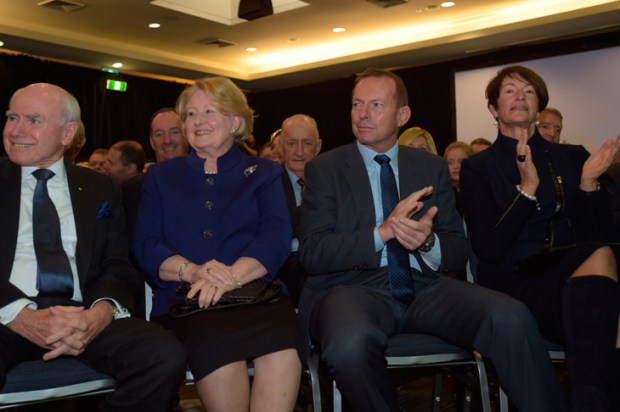Blasphemy is back
The ACT government abolished the crime of blasphemy in 1996. Earlier this month, they brought it back. Religious vilification is now a crime in the ACT. There was a time when to blaspheme, to offend God, was a criminal offence. Even where the offence exists on the statue books, and it does in some states, action has not taken place for generations. In the ACT, a person who believes in a god can take an action against a person who vilifies that god. That sounds like blasphemy to me.
According to Green MP Shane Rattenbury, former International Political Director of Greenpeace International, religious vilification is simply not acceptable in the ACT. So he introduced an amendment to the RDA in the ACT House of Assembly on 4 August. Labor and Liberals agreed and blasphemy is yet again a law in the ACT.
Citing a decade old Human Rights Commission report, which had next to no relevance for the ACT, Rattenbury wailed that some Muslims complained of being called names in public. ‘Terrorist’, ‘Dirty Arab’, ‘Murderer’, ‘Bloody Muslim’, ‘Raghead’, ‘Bin-Laden’, ‘Illegal Immigrant’ were some of the labels and profanities used against Arabs and Muslims in public places.
Why these instances are grounds for a reintroduction of blasphemy is a mystery. To blaspheme is to mock, hold in contempt, curse or revile God, or the Muslim Prophet. Vilification, as in the ACT occurs if one incites ‘hatred towards, serious contempt for, severe ridicule towards or revulsion of, a person or people with a protected attribute, that is, a religious belief.’
The most illiberal religion in Australia, Islam, is now protected, decades after the rest of Australia moved on from the whole idea of blasphemy. The reason it moved on is that the Judeo-Christian religions in Australia are so liberal. They did not see the need to demand the state protect them or their worshippers from the slings and arrows of outrageous fortune.
A Muslim can be offended because someone curses Mohammed: hence blasphemy. Imams, however, are free to spread their particular brand of love for gays, Jews, and Christians, in the name of their religion. Why should we restrict our freedom of speech in favour of one of the least free religions? A Muslim, who has his wife trail behind him fully covered like a chattel, wants to restrict Australia’s freedom to criticise his actions, based on his religious beliefs.
The Pope Song
‘The Pope Song’, by Australian singer-songwriter Tim Minchin, is a 400-word song that contains the word ‘f–k’ 82 times and the word ‘motherf–ker’ 37 times. I rather doubt that anyone will take Minchin to court for religious vilification. Indeed, if you visit the website, genius.com, you will find a glowing interpretation of the ‘genius’ of Minchin’s vile song. ‘The Pope deserves disdain because he protected paedophiles whilst in various positions of power in the Catholic Church.’ ‘Alleged’, perhaps?
Genius.com waxes lyrical about Tim’s lyrics: ‘A punk-esque song written as an angry response to the well-founded allegations that Pope Benedict XVI was aware of, and helped to cover up, child abuse by the Roman Catholic clergy.’ Well-founded? I must have missed that Royal Commission. ‘It also addresses the pussy-footing and politically motivated reaction of the media to these allegations against the Pope.’ No pretense to accuracy, just vilification of Catholics. And the clincher, ‘If you can get more angry about taboo language than you can about the Pope’s protection of paedophile priests, then you effectively condone the Pope’s actions and you deserve disdain.’ Muslims discovered in the late 1980s that the law in the UK was near useless for their purposes when they tried to use Britain’s blasphemy laws to prosecute Salman Rushdie for The Satanic Verses. The case was dismissed on the basis that the blasphemy laws in England only extended to Christianity; possibly only C of E.
Piss Christ was not blasphemous
The concept of blasphemy in Australia was explored in Archbishop of Melbourne v Council of Trustees of National Gallery (1997), where the Archbishop of the Catholic Archdiocese of Melbourne, George Pell, sought an injunction against the Gallery of Victoria from exhibiting the infamous photograph by Andres Serrano, ‘Piss Christ’. The artwork was a photograph of Christ on the Cross, framed and sealed in a waterproof container, supposedly filled with urine.
Pells’ injunction failed, but the judge nevertheless remarked, ‘That a plural society such as contemporary Australia operates best where the law need not bother with blasphemous libel because respect across religions and cultures is such that, coupled with an appropriate capacity to absorb the criticisms or even jibes of others, deep offence is neither intended nor taken.’
I wonder if our sensitive illiberal Muslim Australians have that appropriate capacity? The judge found that ‘in order to amount to a blasphemous libel the matter complained of must raise the risk of a breach of the peace, perhaps general civil unrest.’ There is some debate as to the precise meaning of a ‘breach of the peace’ or ‘cause widespread social unrest.’
He went on to find, ‘There is no evidence before me of any unrest of any kind following or likely to follow the showing of the photograph in question.’ In other words, because Christians did not take to the streets the court would not stop the appalling, offensive display.
Instead, Australian Christians turn the other cheek or cower in the face of a conservative, belligerent and illiberal religion supported by an anti-progress progressive greenie. The Liberal Party rolled over in the face of it.
Talk about weak as piss.
The post Consider this… appeared first on The Spectator.
Got something to add? Join the discussion and comment below.
Get 10 issues for just $10
Subscribe to The Spectator Australia today for the next 10 magazine issues, plus full online access, for just $10.
You might disagree with half of it, but you’ll enjoy reading all of it. Try your first month for free, then just $2 a week for the remainder of your first year.














Comments
Don't miss out
Join the conversation with other Spectator Australia readers. Subscribe to leave a comment.
SUBSCRIBEAlready a subscriber? Log in